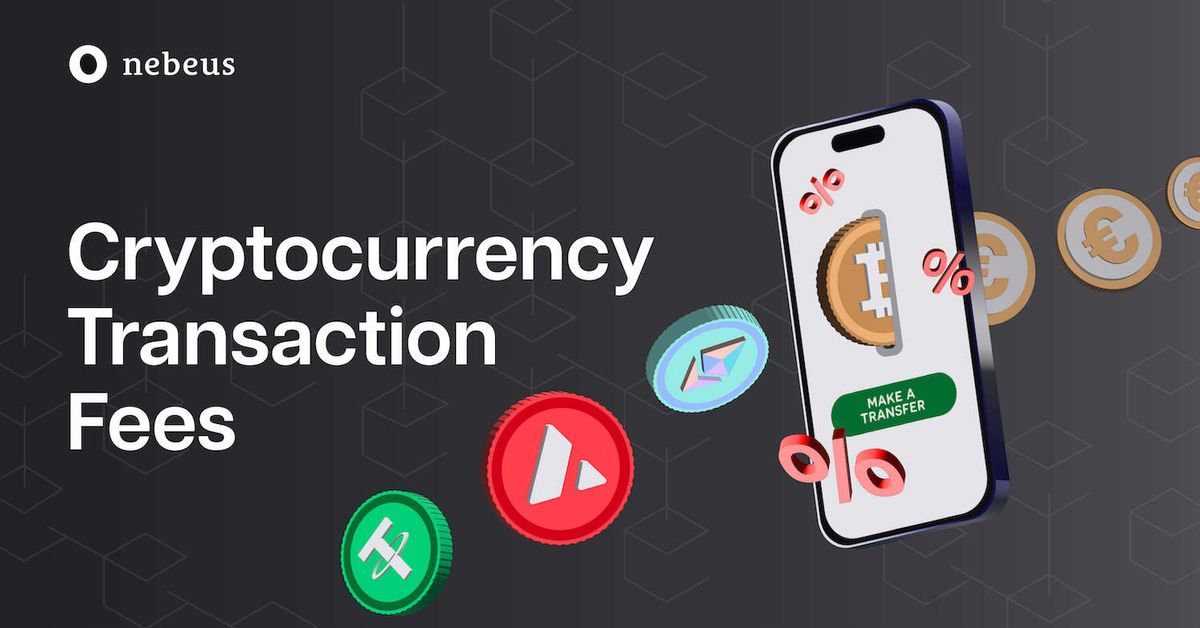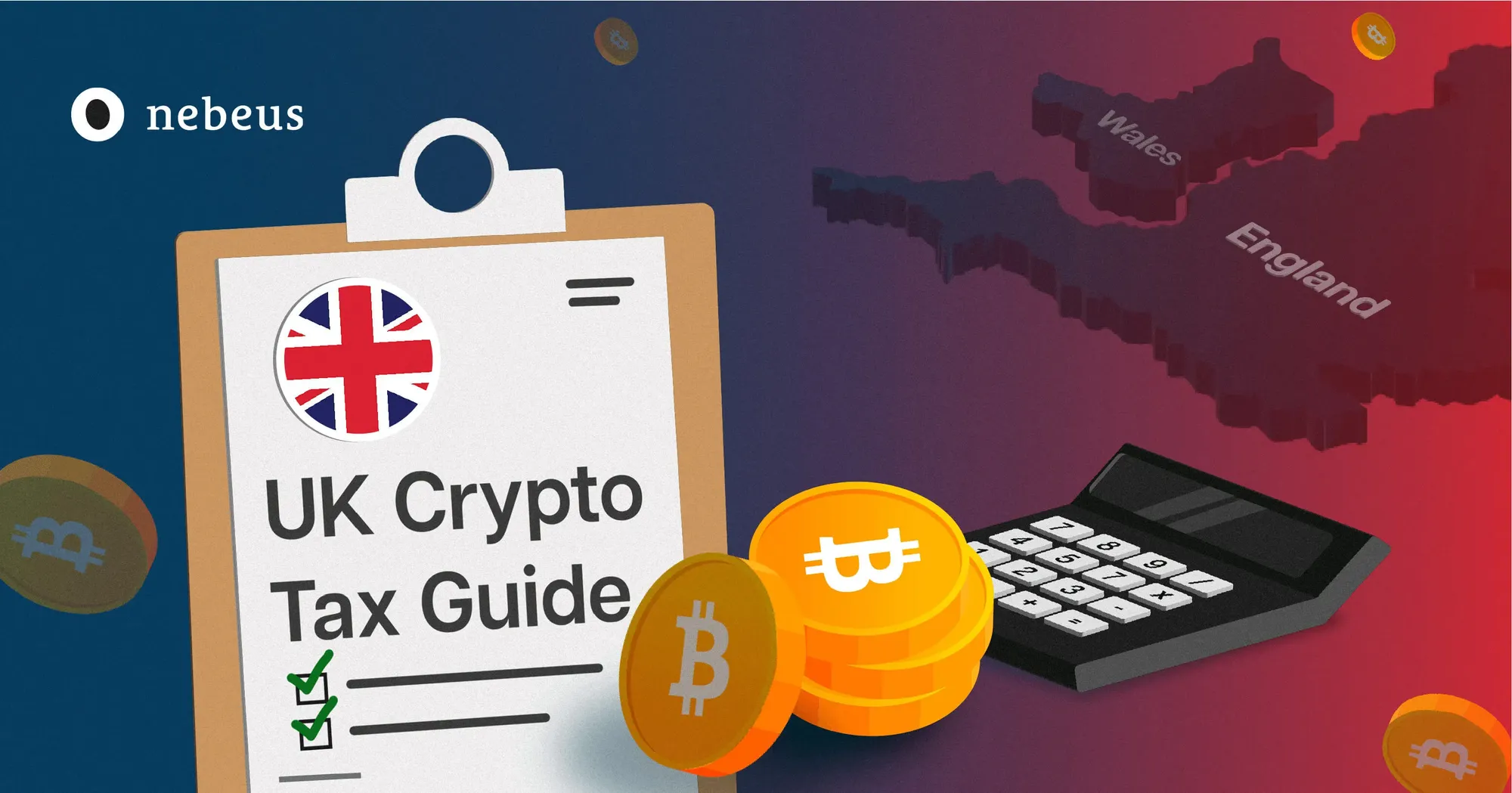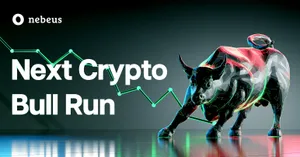As the popularity of cryptocurrencies continues to rise, so does the need to understand transaction costs.
In this blog, we delve into the expenses associated with digital transactions. Whether you're a beginner or an experienced user, this guide aims to equip you with the knowledge necessary to optimize your cryptocurrency transactions.
We will cover how to make the most of your crypto assets, choose the correct payment method and lower your crypto fees.
What are cryptocurrency transaction fees?
Cryptocurrency transaction fees, or crypto fees, are those paid by an individual when they buy, sell or invest in a crypto product.
Similar to trading on the traditional stock exchange, the cryptocurrency exchange charges traders when they invest or withdraw.
Transaction fees are not unique to any singular cryptocurrency exchange; it is how all cryptocurrency trading platforms make their income.
However, different platforms' fees vary based on the transaction customers want to make.
Why do crypto exchanges charge fees?
To put it simply, for cryptocurrency exchanges to function and help users make the trades they need to make a profit, they need to charge to keep their systems functional.
And as we are about to see, most fees are not unreasonable if crypto transactions are carried out with proper thought and care.
Types of crypto exchange fees
There are four different fees for cryptocurrency exchanges, all of which have unique fee structures and serve other purposes. Also, the service fees exhibit significant variation, influenced by various factors including the transaction type, chosen payment method, and the specific blockchain utilized for the transaction.
There are five different fees for cryptocurrency exchanges, all of which serve a unique purpose. Let's have a look at a few examples.
Network Fees
The most common type of fee is a network fee that occurs during cryptocurrency transactions, where cryptocurrency is transferred from one digital wallet to another.
Initially, network fees were introduced to avoid people from flooding a blockchain, but now the fee acts more as an incentive to the miners and validators to add the transaction in the next block of the blockchain.
Transactions with higher fees are usually prioritised, so if the higher the fee, the more likely it is to be processed quicker.
Fees are a significant factor for anyone considering cryptocurrency trading, as the varying fees, depending on the network, can significantly impact cryptocurrency transactions.
For example, there are different fees between Bitcoin and Bitcoin Cash transactions.
Miner fees
As the name suggests, miner fees are paid to support the costs of mining cryptocurrency, incentivise miners and supplement the massive amount of power the mining process uses.
For those who want to know more about the cryptocurrency mining process, transaction verification and blockchain networks, see our article on how to mine crypto.
The cost of a mining fee can vary depending on two main conditions: the number of transactions that need to be verified and the available network capacity.
For example, Bitcoin processes around seven transactions every second, while Bitcoin Cash processes around 116 transactions per second.

Service fees
Service fees are fees charged by third-party applications to facilitate a crypto transaction.
For example, services such as Coinbase, charge a service fee to users when they buy or sell cryptocurrency using their platform.
There is no fixed amount when it comes to service fees, and each platform charges a different amount depending on the platform's size and the market's current state.
For example, some exchanges charge spread fees which are determined by the price someone buys or sells crypto currency compared to its current market price. Spread fees can be as high as 0.5%, making them much higher than typical service fees.
Most cryptocurrency exchanges, if not all, charge service fees, so they are not something that can be avoided.
Deposit/Withdrawal Fees
As the name suggests, deposit and withdrawal fees are transaction fees that arise when someone looks to add or remove funds from their crypto funds.
Most exchanges do not charge to make deposits for the simple fact that they will make a return on the process once the user has invested their deposit.
However, when depositing large amounts, some (not all) exchanges do charge a fee to facilitate the process.
For example, Nebeus have a minimum deposit of €1 and no maximum cap, whereas Crypto.com have a minimum deposit of $200 and a maximum cap of $2,000,000.
Withdrawal fees vary greatly, and almost all crypto exchanges charge users to withdraw.
This is done for a few reasons. First, making a withdrawal transfer costs the exchange time and money to carry out, similar to a transaction fee.
Second, all crypto exchanges want to incentivise users to keep investing, so if a user wants to withdraw, they need to be sure it is worth the costs.
How To Minimise Crypto Trading Fees
As you might well be aware by now, cryptocurrency exchange fees are inevitable for anyone looking to participate in crypto exchanges.
However, that does not mean that investors should pay excessive amounts. In fact, there are a variety of ways you can pay lower fees by being sensible with your crypto trades to ensure you make the most out of your digital assets:
- Choose the Right Time: Monitor the network congestion and transaction fees in real-time. During periods of low network activity, fees tend to be lower. By timing your transactions strategically, you may be able to reduce the fees.
- Explore Alternatives: Consider using alternative cryptocurrencies or networks with lower transaction fees. Different cryptocurrencies have varying fee structures, so it may be worth exploring options that align with your needs.
How do I avoid paying crypto network fees?
In short, it's next to impossible to avoid paying crypto fees. Simply due to the fact that for any crypto exchange to make money, they need to charge exchange fees to do so.
As we have previously mentioned, several processes need to take place for crypto transactions to be completed, all of which can be time-consuming and costly.
Who has the cheapest crypto trading fees?
Depending on the amount you are looking to invest will dictate how much you will pay in crypto fees.
Unfortunately, there is no flat fee in cryptocurrency trading, so it's important to pay attention to the details of different cryptocurrency platforms to maintain a lower transaction fee.
Nebeus
Here at Nebeus, we have some of the best rates when it comes to crypto trading fees with a fixed 0.5% fee on all our trades.
All of our trades are immediate and we offer exchanges on over 25 of the most valuable cryptocurrencies available.
Our services include both personal and business crypto accounts, so you can manage your personal crypto finances as well as pay your staff using crypto.
We have zero spread and hidden charges, plus you can send crypto free of charge to other Nebeus members.
The Nebeus digital wallet allows your to store your crypto and fiat currency all in one place as well as advanced security so you know that your assets are safe.
Binance
At the time this article is being written, Binance has the best exchange charge fees as well as the best fee structures.
Binance is great for both investors and miners as it allows both to make interest. In addition to this, Binance incorporates its unique blockchain to support things such as smart contracts.
Binance has a minimum deposit of just $50, making it an ideal platform for those new to trading in digital currencies.
Some other key stats include 0.1% on maker and taker fees, 0% deposit fee, 3.5% withdrawal fee, average crypto daily trading volume, over 600 different cryptocurrencies and 28.5 million blockchain wallet users.
So, besides having the lowest exchange charge fees, and whether you're new to trading or an experienced crypto investor, Binance is a great platform to buy cryptocurrency.
Prime XBT
In second place is Prime XBT, which, in addition to having low fees, also allows users to access multiple markets from a single account and other crypto services such as Forex, stock indices and commodities.
Another feature that sets Prime XBT apart is its copycat feature that allows users to mimic successful crypto traders, which is particularly useful for beginners looking to understand how to trade.
However, they also have advanced trading options for the more experienced traders, such as high volume and leverage. So, whether you have multiple wallets and you like to keep things centralised, Prime XBT might be the right platform for you.
other features include 0.2% maker fees, 0.4% taker fees, free deposits, minimum transactions of $1 and 100+ cryptocurrencies.
Although Prime XBT is more focused on popular exchanges than Binance, anyone looking to broaden their cryptocurrency networks and grow their digital currency should consider it.
ZenGo
Like Prime XBT, ZenGo has copycat features that allow users to mimic successful cryptocurrency exchanges and is one of the best options for beginner traders.
Their feature allows users to link up their profiles with successful traders so their primary source of trading information comes directly to them via notifications.
However, users can still trade and make other transactions once they become comfortable with cryptocurrency trading.
Specifications include 0.75% maker fees, 1.5-3% taker fees, 0% deposit fees, 0.75% withdrawal fees, minimum transaction of 10$ and 20+ cryptocurrencies.
Crypto fees roundup
Although crypto exchanges are not free, and there is no universal flat fee for buying, selling or trading a digital asset, it is not to say that you will always lose money from a crypto exchange.
Some of the key exchanges have tools to help you make the most out of your crypto and learn more about how the world of crypto works.
So, although you will inevitably have to pay a few minor costs, don't be disheartened.
Exchanges charge fees, and that is something that cannot be avoided; unfortunately, exchanges need funds to maintain their services, and they are not doing it out of the kindness of their own heart, so always be prepared to pay some trading fees along the way.
If you have found this article useful and you'd like to know more about how Nebeus could help you diversify your portfolio, buy, trade, sell or convert cryptocurrency, see our website or download the Nebeus app.
La inversión en criptoactivos no está regulada, puede no ser adecuada para inversores minoristas y se puede perder la totalidad del monto invertido.










